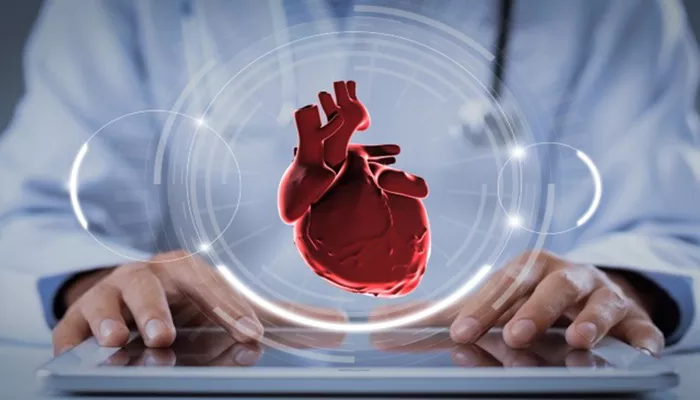Myocarditis, an inflammation of the heart muscle (myocardium), can result from various causes, including viral infections, autoimmune diseases, and drug reactions. Identifying myocarditis is crucial because it can lead to severe heart complications if left untreated. Testing for myocarditis involves a combination of clinical evaluations, imaging studies, and laboratory tests to diagnose the condition accurately. This comprehensive guide explores the various methods used to diagnose myocarditis, providing insights into each test’s purpose, procedure, and significance.
How to Get Tested for Myocarditis
1. Clinical Evaluation
The diagnostic process for myocarditis begins with a thorough clinical evaluation. This involves assessing the patient’s medical history, symptoms, and physical examination findings. Understanding the patient’s symptoms and their onset is critical for distinguishing myocarditis from other cardiac conditions.
Medical History
A detailed medical history helps identify potential causes of myocarditis. Key aspects to review include:
Recent Infections: Viral infections, particularly those caused by viruses like adenovirus, parvovirus B19, or coxsackievirus, are common triggers for myocarditis.
Autoimmune Diseases: Conditions like systemic lupus erythematosus or rheumatoid arthritis can predispose individuals to myocarditis.
Medications and Drug Use: Certain drugs and recreational substances can cause myocarditis as a side effect.
Family History: A family history of heart diseases or autoimmune conditions can provide valuable context.
SEE ALSO: Why Are Myocarditis Rates Surging in Europe?
Symptom Assessment
Symptoms of myocarditis can vary widely and may include:
Chest Pain: Often described as sharp or pressure-like pain, which can be persistent or intermittent.
Fatigue: Persistent tiredness and weakness not proportional to activity levels.
Shortness of Breath: Difficulty breathing, especially during physical exertion or when lying flat.
Palpitations: Irregular or rapid heartbeats.
Swelling: Edema in the legs, ankles, or feet.
Physical Examination
A physical exam can reveal signs of heart failure or inflammation, including:
Heart Sounds: Abnormal heart sounds or murmurs.
Vital Signs: Elevated heart rate or blood pressure changes.
Edema: Swelling in extremities.
2. Laboratory Tests
Laboratory tests play a crucial role in diagnosing myocarditis by identifying markers of inflammation and cardiac injury.
Blood Tests
Blood tests are performed to detect biomarkers indicative of myocarditis:
Troponin Levels: Elevated levels of troponin, a protein released when heart muscle cells are damaged, suggest myocardial injury.
B-type Natriuretic Peptide (BNP): High levels of BNP can indicate heart failure, which may be associated with myocarditis.
C-Reactive Protein (CRP): Elevated CRP levels suggest inflammation, which can be associated with myocarditis.
Complete Blood Count (CBC): Can reveal signs of infection or inflammation.
Autoimmune Markers
For suspected autoimmune myocarditis, specific tests include:
Antinuclear Antibody (ANA) Test: To detect autoimmune diseases that could be linked to myocarditis.
Anti-Myocardial Antibody Test: To identify antibodies against heart muscle tissue.
3. Imaging Studies
Imaging studies provide visual information about the heart’s structure and function, helping to confirm the diagnosis of myocarditis.
Echocardiography
Echocardiography uses sound waves to create images of the heart. It can:
Assess Cardiac Function: Detect reduced ejection fraction, which indicates impaired heart function.
Identify Inflammation: Observe changes in the heart muscle or pericardial effusion (fluid around the heart).
Cardiac Magnetic Resonance Imaging (MRI)
Cardiac MRI provides detailed images of the heart’s structure and function:
Identify Myocardial Inflammation: MRI with gadolinium contrast can highlight areas of inflammation and edema in the myocardium.
Assess Heart Muscle Damage: Evaluate the extent of damage to the heart muscle.
Chest X-ray
A chest X-ray provides a basic view of the heart and lungs:
Detect Fluid Accumulation: Identify signs of heart failure or fluid buildup around the heart.
Assess Heart Size: Observe any enlargement of the heart, which may indicate inflammation.
4. Electrocardiogram (ECG)
An ECG records the electrical activity of the heart and can reveal:
Abnormalities: Changes in the ECG pattern, such as ST-segment elevation or depression, which may indicate myocardial inflammation or injury.
Arrhythmias: Irregular heart rhythms that could be associated with myocarditis.
5. Endomyocardial Biopsy
In certain cases, an endomyocardial biopsy may be performed:
Procedure: A small sample of heart tissue is obtained via a catheter inserted through a vein in the neck or groin.
Purpose: The biopsy helps identify the presence of inflammatory cells and determine the underlying cause of myocarditis.
Risks and Benefits: While the biopsy provides definitive evidence, it carries risks such as bleeding or infection.
6. Other Diagnostic Procedures
Depending on the case, additional tests might be necessary:
Exercise Testing
To evaluate the heart’s response to physical exertion and detect exercise-induced symptoms.
Holter Monitoring
A continuous ECG recording over 24-48 hours to capture intermittent arrhythmias or symptoms.
Tilt-Table Test
To assess the heart’s response to changes in position and evaluate symptoms like dizziness or fainting.
Conclusion
Accurately diagnosing myocarditis requires a multifaceted approach involving clinical evaluation, laboratory tests, imaging studies, and potentially invasive procedures. Each diagnostic tool provides valuable information about the heart’s condition and helps guide appropriate treatment. If myocarditis is suspected, it is essential to consult a healthcare provider who can recommend the most suitable tests based on individual symptoms and clinical findings.

